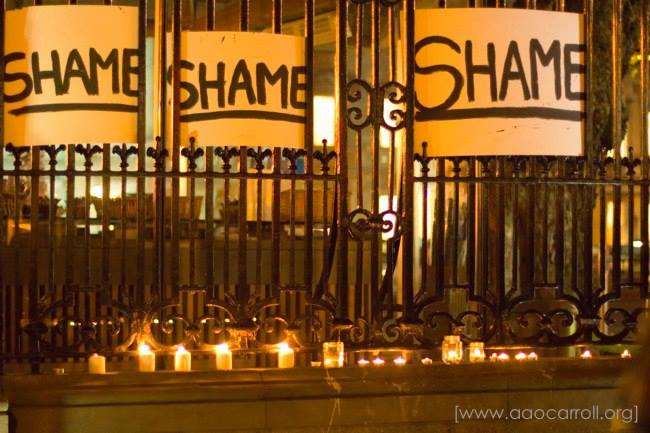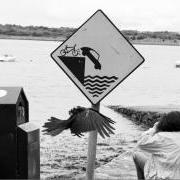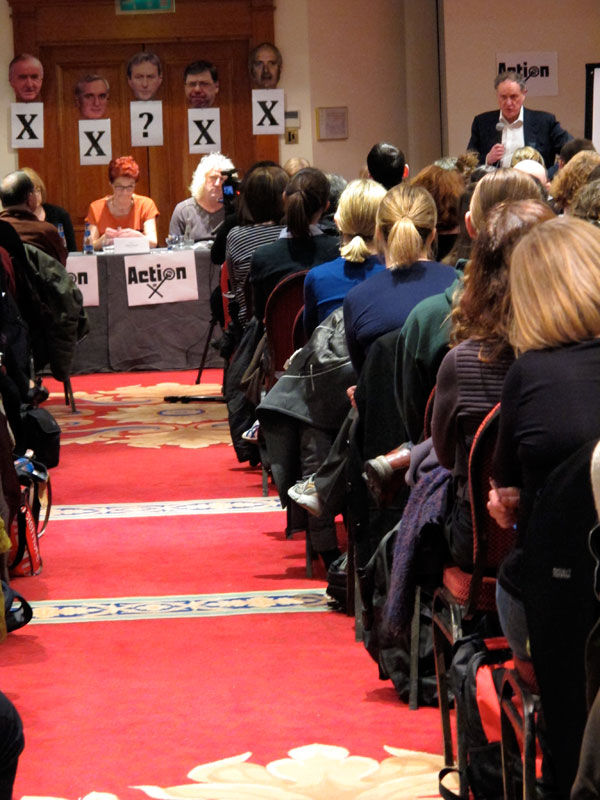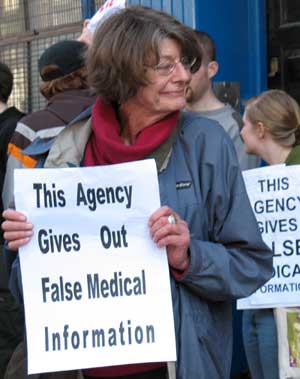Over 30 years of anarchist writing from Ireland listed under hundreds of topics
Aileen O'Carroll
Shame on Labour for Opposing Fatal Foetal Abnormality Bill
 Tonight members of the Labour Party voted against a bill which would allow abortion in situations where the foetus has no prospect of survival.
Tonight members of the Labour Party voted against a bill which would allow abortion in situations where the foetus has no prospect of survival.
The second time they did this was after Savita Halappanavar died in October 2012. Within months of this they again voted against abortion.
Mental health: From a cruel world to a new world
 Yesterday I went to a funeral for a man who cared passionately for those who suffered at the hands of state cruelty. He campaigned tirelessly against racism in Ireland and for rights for immigrants. He himself suffered from depression and took his own life. It was a very sad funeral.
Yesterday I went to a funeral for a man who cared passionately for those who suffered at the hands of state cruelty. He campaigned tirelessly against racism in Ireland and for rights for immigrants. He himself suffered from depression and took his own life. It was a very sad funeral.
A Question of Choice: The X case is not enough
I remember when I was 13 trying to work out my view on abortion. Abortion was in the news, a pro-life referendum had just been passed. Most of my friends’ mothers had campaigned on the ‘pro-life’ side. Abortion was in the classrooms. I remember a teacher, walking between our desks, saying ‘abortion, abortion’, rolling the rrrs, making the word stretch. “Aborrrrrrtion - even the word is ugly”. I remember sitting there, too afraid to question.
Hundreds attend Action on X meeting in Dublin to demand Abortion Legalisation in Ireland

A meeting calling for abortion legalisation in Ireland, at the Gresham Hotel in Dublin, was filled to capacity last night as hundreds crammed into the room. The meeting marked 20 years from the X-case and the failure of all the political parties in the years since to legislate for the limited abortion provision required by the X-case court judgement. The clear message was that it was time for Action on X.
The first speaker, journalist Vincent Brown described the long fight for abortion rights in Ireland, from the so -called 'pro-life' referendum in 1983, to the X-case in 1992 and the referendums afterwards.
Remembering Sue Richardson /Sarah Fenwick Owen
 Three days after Christmas, on one of those clear winter days during which the dark clouds are pierced by a sunlight that turns the water to silver, a group of friends gathered at Bull Island in the heart of Dublin city to say goodbye to Sue Richardson. Sue died in October in 2011, aged seventy, sitting at her kitchen table, waiting for the kettle to boil. At her funeral a former housemate said, ‘Sue had an uncanny knack of turning the conversation away from herself’. She had an extraordinary life, yet spoke very little about it. The story here cannot be anything but incomplete.
Three days after Christmas, on one of those clear winter days during which the dark clouds are pierced by a sunlight that turns the water to silver, a group of friends gathered at Bull Island in the heart of Dublin city to say goodbye to Sue Richardson. Sue died in October in 2011, aged seventy, sitting at her kitchen table, waiting for the kettle to boil. At her funeral a former housemate said, ‘Sue had an uncanny knack of turning the conversation away from herself’. She had an extraordinary life, yet spoke very little about it. The story here cannot be anything but incomplete.
Image: Sue on a pro-Choice picket of
a Rogue agency in Dublin in 2007
Second Thoughts on Work-life Balance Day
Today is work-life balance day. "Hurrah!" you think. Think again. Despite how friendly it sounds, work-life balance is not something to celebrate. There are three things to know about work-life balance.
Reports from the 2006 London anarchist bookfair
In October ten members of the WSM travelled to London to attend the annual anarchist bookfair there. This is a massive event with around eighty individual stalls, films and forty or so meetings held by various groups. Thousands of people pass through the door of the bookfair over the day.
Global actions against the Iraq war
In the extensive build-up to this war the United States had to enlist the logistical help of many countries to prepare for the invasion of Iraq. This in turn meant that anarchists and activists had the opportunity to display to their complicit leaders their opposition to this impending war. We have compiled a small selection here of the various actions that occurred thoughout the build up to the war.
Why join an Anarchist organisation
'Liberty without socialism is poverty and injustice. Socialism without liberty is tyranny and brutality'
(Bakunin)
Bakunin had a vision of an alternative way to run society and it is a vision that we share today. I want the replacement of the current economic system, a system based on profit and hierarchy, with a system based on need and freedom. I don't believe the current system can be reformed to make it more human. In different ways, and on various levels, the political work I do is aimed at creating the possibility of revolution. Revolutionary change is not as unusual as is often thought; in 1974 we had the Portuguese revolution, in 1979 Iranian Revolution, in 1979 Nicaragua, in the eighties we saw the collapse of the Soviet Union.
Beyond the 'Days of action against global capital' summit protests
Amsterdam, Geneva, Cologne, Seattle, London, Washington, LA, Prague. What do these cities have in common? In the last four years they have been the site of a new phenomenon, the Global Protest. For decades, the organisations that manage capitalism have met to divvy up the world among themselves. For the first time, their role as dealers of poverty and misery has been exposed by thousands of angry protesters. The symbolic value of these protests cannot be under estimated. If only for a brief period of time, a few days here and there, people have come together to say 'Enough!'.

